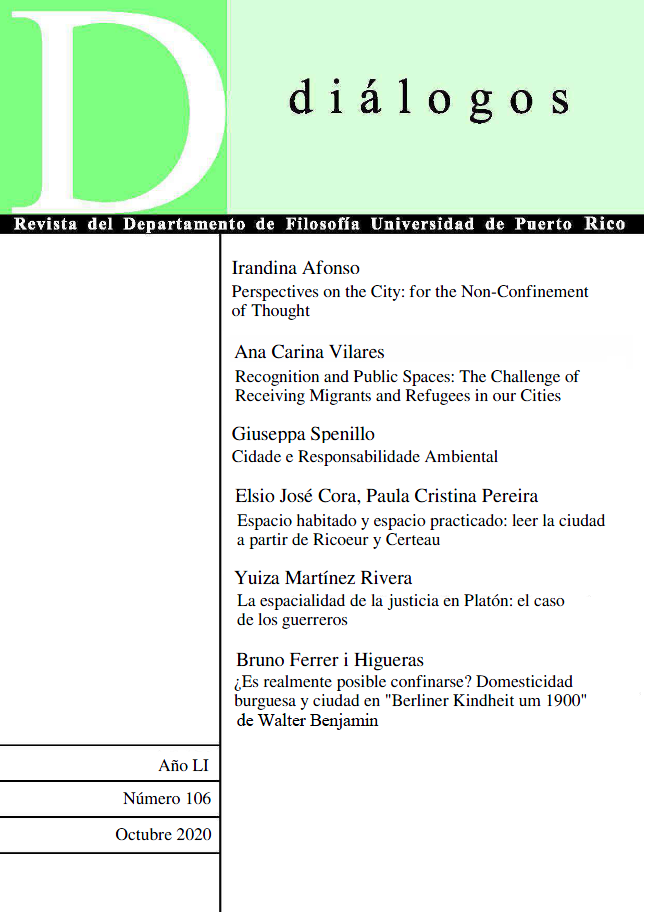Abstract
This paper intends to analyze and understand the political vision and ethical categorization which underlie our common sense about the movement and arrival of migrants and refugee, from the perspective of the Western worldview and as European citizens of the 21st century. We intend to explore Hannah Arendt s concept of public space with Adela Cortina's authentic practice of recognition, crossing the two philosophical proposals in a search for the bonds and boundaries of compassion in public life, and evaluating their emotional effects on the political intersection between necessity and liberty. To the greatest extent, our purpose is to deepen the needed construction of material and immaterial common goods in our cities, mainly in the act of receiving migrants and refugees; not only in our physical spaces, but especially in our public spaces. This local act of receiving, must recognize migrants and refugees deserving agents, capable of political discourse and action, and not only as patients of violence and suffering.

